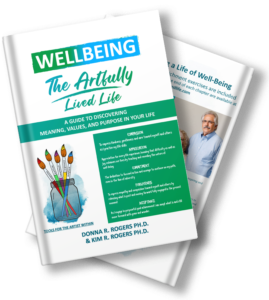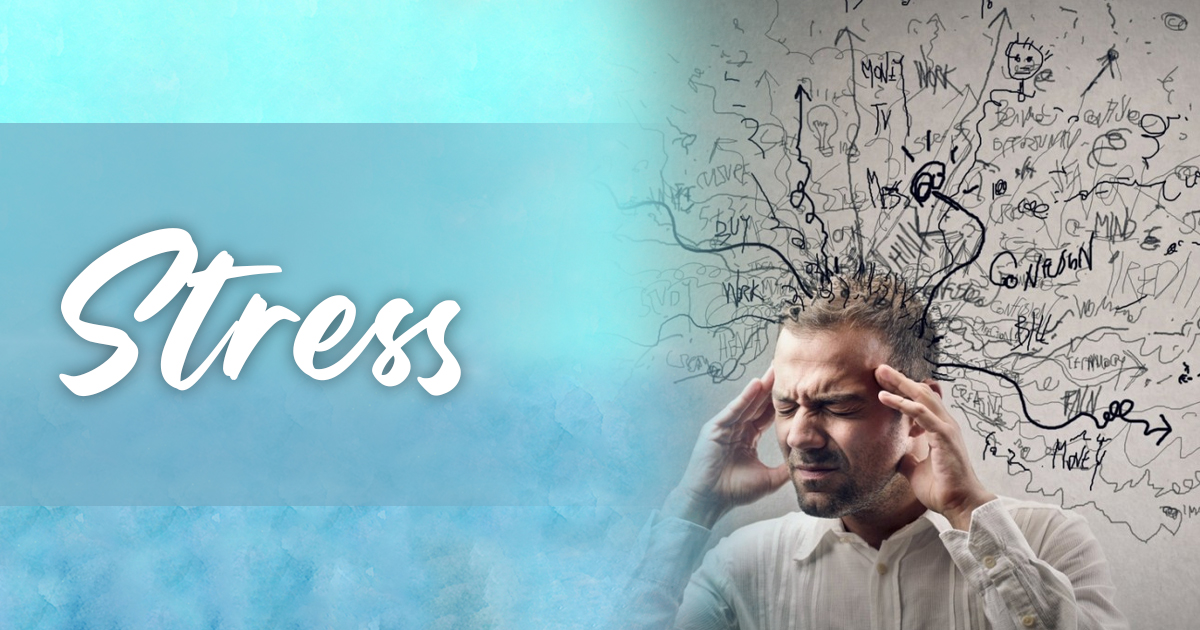What is Stress and How Do We Experience it?
Life in our current society seems to demand that we be alert, smart, fast and high functioning at all times. We need to think quickly, be aware of what is going on around us and be ready to respond to any situation or defend ourselves. Although having 24/7 smartphone or tablet access to texts and emails is convenient, it can also be a constant source of stress.
In recent times, economic pressures have led to longer work hours, demanding bosses, stagnant wages, and higher costs for healthcare and education. Everyday challenges, from a crying child in a grocery store to catastrophic events, demand our response. Environmental stressors like pollution, traffic, noise, and the economy are beyond our control, while illness, pain, and allergies add to our stress levels. Social and emotional stresses stem from relationships with parents, bosses, friends, coworkers, and spouses. The demands of parenting, employment, education, and maintaining a household can be overwhelming.
In physics, stress is a force that is applied to an object. Consider, for a moment, the force that is required to bend a tongue depressor. The force applied to the wood by your thumbs is the stress. The extent to which the wood bends and returns to its original shape can be thought of as “resiliency.” Stress that is applied to the wood beyond its capacity to return to its original shape may cause the wood to splinter. In human beings terms, stress applied beyond our capacity to bounce back or recover may be thought of as distress.
Although Excessive stress is easy to identify with serious physical or psychological symptoms, it can be hard to define in everyday settings. Stressful situations for one person may not be for another. Research suggests that stress management largely depends on how we view and interact with life’s challenges. Distress arises more from our interpretations than the events themselves.
When Does Stress Become a Problem?
The term “stress” refers to various concepts: outside events or requirements imposed on us, our feelings or responses to these pressures (i.e., being stressed out), or the normal wear and tear of living. Stress becomes distressed when it occurs too frequently, too intensely, or when we lack the resources to manage it. Contributing factors include being surprised by an event, feeling responsible or being blamed for it, and feelings of helplessness and powerlessness, which can lead to the belief that we have little control over our lives. Without proper coping strategies, our attempts to manage stress can result in unhealthy or destructive behaviors, adding to our distress.
Stress affects almost every system in the body. Hormones such as cortisol, cortisone, adrenaline, and thyroid hormones are released, causing hyper-arousal of key body systems: blood pressure rises, heart rate increases, breathing rate increases, and blood is diverted to the muscles. Glucose and insulin are released into the bloodstream along with cholesterol to provide energy. Some systems, like peripheral circulation and digestion, are shut down. Frequent or prolonged stress can lead to elevated glucose and insulin levels, a weakened immune system, increased blood pressure and pulse rate, and reduced resistance to infections, cancer, and other illnesses.
Not surprisingly, Stress is also linked to mental and emotional health disorders such as depression, anxiety, panic disorder, and PTSD. Stressful life events can cause sleep disturbances, mood swings, and difficulties with concentration. Individuals experiencing stress may report increased psychiatric symptoms such as obsessions, compulsions, or trauma responses to minor occurrences. Stress can lead to more frequent or intense angry outbursts, irritability, impatience, and frustration, and create difficulties with learning or retaining new information.
The American Psychological Association (APA) has been tracking stress in America since 2007. Data indicates many adults downplay stress, with 67% feeling their issues are too minor compared to others. Common reasons for not seeking treatment include disbelief in therapy (40%), time constraints (39%), and lack of insurance (37%).
Stress management is a challenge for many, with 62% choosing not to share their stress to avoid burdening others. Despite finance being a major stressor, only 52% are comfortable discussing it, and 45% feel embarrassed discussing financial issues.
Additionally, 61% report that others expect them to simply overcome stress, but 47% desire support in managing it. Many don’t know where to start with stress management (36%), or feel overwhelmed by it (33%). Over the past year, 66% felt under supported emotionally, with 26% needing significantly more support. Furthermore, 44% feel misunderstood, and 52% wish for someone to turn to for advice or support. What is more disturbing, is that rather than coping with stress by using healthy and effective strategies, such as strengthening the social support networks, improving diet, exercise, sleep habits, etc., we tend to cope by watching television (for more than two hours per day), surfing the internet, napping, over eating, drinking alcohol, and smoking.
How Can We Reduce or Better Manage Our Stress?
Current approaches to stress management encompass a variety of techniques aimed at enhancing physical and mental health. These approaches primarily focus on two areas. The first involves lowering of the physiological response using relaxation techniques. The second involves modifying your perception or how you think about a stressful situation or event.
Mindfulness and Meditation are practices that are highly effective for reducing one’s response to stress. Mindfulness involves being fully present and engaged at the moment, while meditation typically involves specific techniques like deep breathing or visualization to calm the mind. Both have been shown to reduce symptoms of anxiety and depression and can improve overall emotional resilience. Mindfulness training programs such as the Mindfulness-Based Stress Reduction (MBSR) programs are highly effective in reducing symptoms of unmanaged stress. How we view stress and what we believe about our abilities can give us considerable power in managing the impacts of stress. When we learn to pay attention to our thoughts and feelings from a moment-to-moment perspective and a non-judgmental attitude, we become more aware of our emotional reactivity to life events. By paying attention to the “dance of life” in this way, we increase our resilience and our capacity to manage our lives more effectively.
Physical Activity is a potent stress reducer. This doesn’t necessarily require a gym membership and personal trainer, simply walking 30 minutes a day can make a significant difference. Exercise not only helps in managing physical stress responses by reducing levels of the body’s stress hormones, such as adrenaline and cortisol, but also stimulates the production of endorphins, chemicals in the brain that are the body’s natural painkillers and mood elevators. Also, don’t forget to relax your muscles. Stress tightens muscles, leading to discomfort. Techniques like stretches, massages, warm baths, and muscle relaxation exercises can alleviate this tension.
Yoga and Tai Chi are forms of exercise that incorporate elements of meditation, physical postures, and breathing exercises, which can help in reducing stress and anxiety. These practices have been found particularly helpful as adjunctive therapies for a range of conditions including anxiety and PTSD
Relaxation Techniques such as deep breathing, progressive muscle relaxation, and guided imagery can help lower blood pressure and reduce symptoms of stress. These practices help in triggering a relaxation response, a physiological process that decreases the effects of stress.
Cognitive Behavioral Strategies involve changing the thought patterns that can produce stress. Techniques might include reframing one’s thoughts about stressful situations, setting realistic goals, and improving problem-solving skills to manage stressors more effectively.
Lifestyle Adjustments include adequate sleep, maintaining a healthy diet, and staying socially connected are vital components of stress management. A regular sleep routine, avoiding caffeine and alcohol before bed, and limiting screen time can improve sleep quality. These not only improve your physical health but also enhance your emotional resilience.
Take a Moment in Nature: Exposure to nature can uplift your mood and reduce stress. Even brief periods spent in green spaces or watching nature scenes can have calming effects.
Seek Help: If stress becomes unmanageable, consider consulting a mental health professional to develop strategies for dealing with stressors and improving your response to them.
Each of these techniques can be tailored to individual needs and preferences, making stress management a highly personal practice. For many people, a combination of these strategies works best, providing a comprehensive approach to reducing both acute and chronic stress.
The best methods for managing stress are the ones that you consistently use.
Where can I get additional information on stress management and well-being?
“WellBeing: The Artfully Lived Life,” is a complete guide to psychological well-being; a holistic concept, encompassing all aspects of our lives. This book offers a wealth of insights and practical advice for practicing mindfulness, fostering meaningful relationships and engaging in thinking and behavior that brings joy and fulfilment in your life. Taking small steps each day can lead to transformative changes in your well-being, ultimately leading to a more balanced and artful existence.


